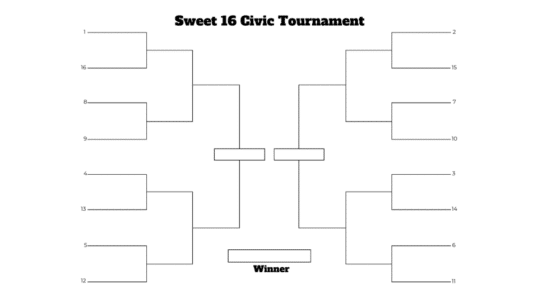There are many different kinds of the interactivity going on in IF public discussions. But the interactivity of ideas is one of the most important ones. Our reports are developed by two groups of people who meet every month for over a year to explore, develop, and prepare public policy possibilities that they think would be useful for their fellow citizens to discuss. Each report contains several contrasting policy possibilities. And each of these possibilities contains many nuanced and interesting ideas that can stimulate and inform a more thoughtful discussion about its area of public policy concern and the different policy possibilities that are available to address it. I believe that discussions like these make our democracy stronger.
IF reports are not intended as mere conversation starters. They invite you to participate in an on-going discussion about their areas of concern and the policy possibilities for addressing it with the people who have developed our reports and with the people who have taken the time to read and discuss them. IF public discussions are a continuation of our panels’ discussions. The participants in our public discussions continue to interact with our panelists’ ideas and, in the process, bring in their own thoughts and experiences and insights as well.
The policy possibilities in our reports are not pre-digested for you. They do not tell you what to think and why to think it. They instead present many contrasting ways of thinking about policy and many different ideas with which you can interact. They invite you to probe deeper into the possibility and to try to understand what it actually means, why some people might want to adopt it, the different possible ways to implement it, and the different consequences—both intended and unintended—that might ensue from it.
Policy reports that present only one conceptual possibility are rather dull for me, no matter how many ways they suggest to implement it. I prefer to look at an area of concern from many different sides; to consider the many different interests, values, and goals that Americans have; along with the unintended consequences of the policy possibilities that they suggest. I know that reports that advocate certain possibilities will generate more enthusiasm from ideologically homogenous audiences who come to cheer for the policies they prefer. I also know that some people find it more challenging, unsettling, and less attractive to interact with ideas that differ from their own, especially if they regard them as morally evil. But this is precisely what the Interactivity Foundation tries to overcome in our public discussions. We encourage people to try to understand ideas that differ from their, and the people who propose them, by providing opportunities to interact with them. We do not advocate any of the policy possibilities in our reports to be adopted. We do not ask the participants in our discussions to change their minds or to agree with any of the possibilities. But we do encourage them to think about different policy possibilities, and to discuss them with others.



